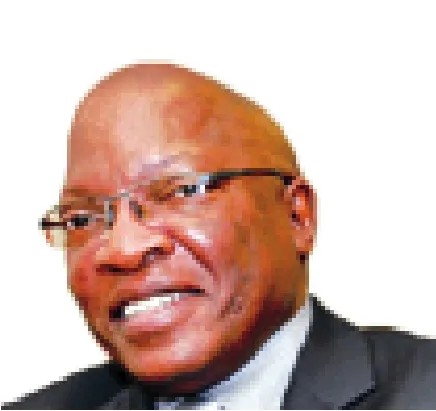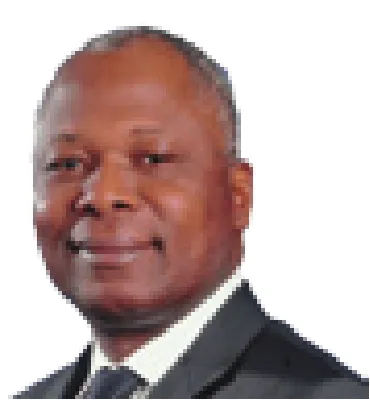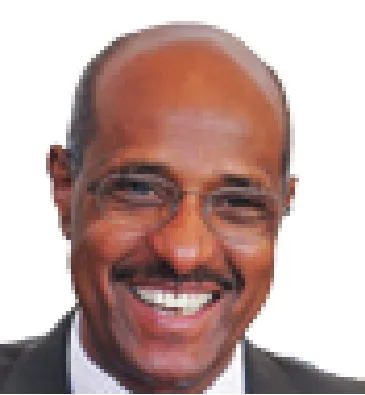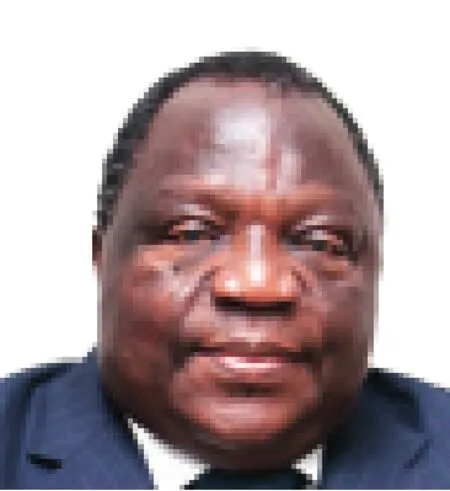LEADING AFRICA FORWARD
2013-12-06
As African countries gear up to celebrate the 50th anniversary of the founding of the Organization of African Unity (OAU), the predecessor of the African Union (AU), Beijing Review spoke with several African ambassadors to China to solicit their opinions on the AU’s role and future development. Excerpts follow:
Beijing Review: In your view, what role has the AU played in strengthening African unity over the past half century?
South African Ambassador Bheki Langa:The 50th anniversary comes at a moment when Africa is on the rise, as reflected by the fact that Africa is home to six of the 10 fastest-growing economies in the world. This was achieved because of the deep economic and political reforms that have taken place on the continent, spearheaded by the transformed AU.
As the coordinating body for the continent’s political and economic programs, the OAU was instrumental in fostering cohesion,unity and common purpose in otherwise disparate countries with different but common challenges related to underdevelopment,poverty and lack of economic infrastructure.
The OAU’s transformation into the AU in 2002 has provided the needed impetus toward institutionalizing the necessary reforms to move the continent from what The Economist called the “Dark Continent” on one of its covers, to what it today recognizes as a “Rising Continent.”
The common continental objective is to de fine a trajectory for Africa to extricate itself from the status of development laggard.Indeed, the start of the new millennium has seen the reawakening of discourse and action on African development and renewal.
Cameroonian Ambassador Martin Mpana:The role played then by the OAU and now by the AU has been instrumental in harmonizing African policies in various fields. The AU was strengthened through various decisions and actions: total liberation of Africa from colonialism and all forms of discrimination,including apartheid; promoting unity and solidarity amongst African states; coordinating and intensifying cooperation and efforts to ensure better living conditions for the peoples of Africa; and defending the sovereignty, territorial integrity and independence of African states.
It’s worth mentioning that the OAU/AU is the only African institution that brings together the continent’s heads of state, so they can discuss common African issues and make decisions on Africa at the top level. Therefore, the AU plays a crucial role in terms of coordination.
Pan-Africanism and the African renaissance are the themes of the AU Golden Jubilee celebrations. Why are these two themes so important?
Ethiopian Ambassador Seyoum Mesfin:They are so important because the ideology of pan-Africanism is still a burning desire and the roots of this movement go beyond the days of the establishment of the OAU. It actually started in the movement of the African diaspora across the Atlantic in North America and the Caribbean islands. There were major movements for the political and human rights of the African diaspora led by leaders like Marcus Garvey, an African Jamaican.
When this was adopted by the founders and forefathers of the OAU in the 1960s, this pan-African ideology was meant to liberate black people from colonialism, slavery and injustice, and we see this pan-African ideology and spirit as more relevant today than ever because Africa is still not liberated from backwardness, and millions of Africans are still living in underdeveloped conditions.
Africa is a continent rich in culture. It may be backward in terms of development,but Africa is the cradle of humanity and also inspired many ancient and Middle Eastern civilizations that the Africans helped advance in trade, shipbuilding and many other areas.The renaissance of Africa is not only a dream about what Africa was in the past, but also looking to the opportunities that Africa can find in international economic, political, diplomatic and security arenas.

Bheki Langa
Cameroonian Ambassador Martin Mpana:Pan-Africanism and the African renaissance reflect the historical and contemporary roots of the continent.
Pan-Africanism refers to the vision of the founding fathers of the OAU/AU, who aimed at fighting against colonialism, apartheid and all kinds of oppression and discrimination.
The African renaissance refers to the strong political will and the consensus reached at the 1999 OAU Summit in Sirte,Libya, on the need for Africa to embark on transformations toward stronger unity by reinforcing the role of regional economic communities. This coincided with the birth of the AU in a changing global order.
In what ways can the AU foster pan-Africanism and the African renaissance?
Ethiopian Ambassador Seyoum Mesfin:Truly, the AU is the major leader, and probably the only major leader that can move all other mechanisms toward the creation and building of genuine unity among Africans and African countries.
To unite Africa into one prosperous and peaceful continent cannot be achieved in one go, or in a short period of time. This unity will de finitely have to be built brick by brick, stone by stone with a solid foundation,and will require a comprehensive approach.
The AU is truly the vehicle for this unity.What the AU can do is what the member countries of the AU are prepared to do—they have to prepare to seek their sovereign interests stage by stage, to empower the AU,to address issues in the interest of our collective will and desire. And there is no substitute for the AU in leading the continent toward unity.

Martin Mpana

Seyoum Mes fin

Hassane Rabehi

Nolana Ta Ama

Julio Morais
Algerian Ambassador Hassane Rabehi:Since its creation in 1963, the OAU made every effort to promote greater African economic, social, cultural and political integration. The AU has embarked on a struggle for a united Africa, economic independence and development that would change the lives of Africans for the better.
Among the contributions to the African renaissance by the AU, I would like to mention: adoption and implementation of the Language Plan of Action; establishment of the African Academy of Languages in 2006 in Bamako; strengthening the work of the Center for Linguistic and Historical Studies by Oral Tradition, based in Niamey; the Charter for African Cultural Renaissance, adopted in Khartoum; the Pan-African Cultural Festival held in Algiers, Algeria in 1965 and 2009; and the African Renaissance Monument in Dakar.
What are the challenges facing the AU today? How can these challenges be met?
Ethiopian Ambassador Seyoum Mesfin:Africa is a continent endowed with huge natural resources of paramount importance to the development of the continent and the global community. But in spite of this potential, Africa is still one of the least developed continents today. Africa’s human resources have to be transformed into human capital.We have to advance in education, science and technology. We have to transform our natural resources into real capital.
The AU has fought harder than any other organization to make the collective African voice heard. Africa is one of the continents affected by the impact of climate change not of its own making. Africa can collectively negotiate for mitigation and adaptation of the negative impact of climate change and ensure that this global threat is averted through collective action. We need to interact with the global community to do this, so the AU in particular is our collective voice to safeguard the interests of Africa.
Algerian Ambassador Hassane Rabehi:Education, self-sufficient food production, unemployment, illegal immigration,refugees, agriculture, climate change, and a lack of financial means are some of the challenges for the AU. Health poses a great challenge, and is being dealt with by accelerating reduction of maternal mortality in Africa and by fighting the scourges of HIV,tuberculosis and malaria.
The AU is aware of the challenges that lie ahead of us, and will do everything in its power to achieve the goals of the continental agenda, including stability, security and development.
How do you see the future of China-Africa relations?
Togolese Ambassador Nolana Ta Ama:I would say the partner that has been most actively on Africa’s side is China, which has,especially since 1949 [when the People’s Republic of China was founded], developed diplomatic relations based on mutual cooperation aimed at dealing with all challenges facing the continent.
Cape Verde’s Ambassador Julio Morais:China has been, and continues to be, the AU’s strong and faithful ally, a commitment that is fully illustrated by the new AU headquarters building, which was donated by the Chinese Government. China, since the 1960s, has helped Africa face its difficulties and also supported its development endeavors, either bilaterally or multilaterally. ■

